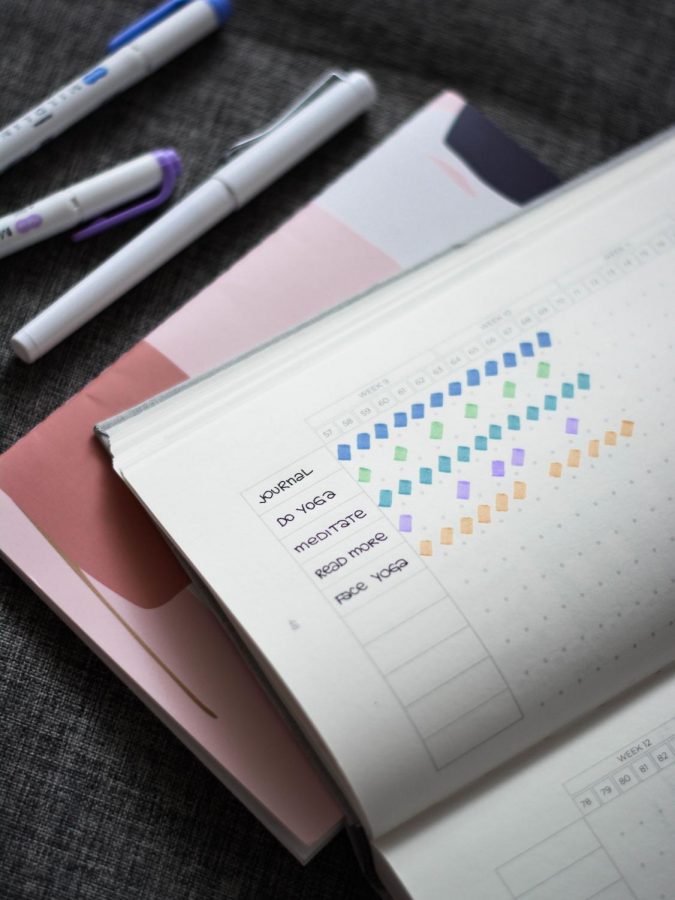The Power of Routine
From the second one wakes up in the morning to the moment one goes to bed at night, many people find they follow a certain routine. Ask yourself: do you have a prescripted routine that you follow? According to Dictionary.com, a routine is defined as “a sequence of actions regularly followed; a fixed program.” It is human nature to fall into a routine, whether it consists of getting up at the same time each day to get ready for school, working the same shift at a job every day, or participating in a sport with set practice times. Comfort is found in knowing in advance what the day holds and what tasks one intends on completing; therefore, an order to perform daily activities lends a sense of stability and security to life. Although there is a time to change things up; overall, a routine will serve up unparalleled advantages.
According to the website for Northwestern Medicine, people who follow set routines everyday experience significant benefits. Northwestern Medicine contends that “People are creatures of habit, and routines offer a way to promote health and wellness through structure and organization. Having a routine can greatly improve your health” (Health Benefits of Having a Routine). Some of the advantages to a set routine include the following: lower levels of stress, sounder sleep, and healthier eating habits. Having a routine also goes hand-in-hand with good time management skills. Consequently, those who have morning routines are less likely to arrive late to school or work and more likely to experience calm in their day, along with a better state of mental health. Jennifer Cohen, author of The Power of Habit claims that getting to work a half hour early is a good habit: “You want to do this because…the extra quiet time in the morning will help you to be more productive, and that productivity will be rewarded by an increased sense of job satisfaction, and an overall better work environment” (Do You Want to Change Your Life). Imagine what getting up a half an hour earlier for school could mean for the rest of your day.
Who among us has awoken late to school and encountered an instant state of panic, one which sent our stress skyrocketing? Experts claim this anxiety is unhealthy both mentally and physically and that the solution to this problem is setting a routine and sticking to it. What that means is that hitting the snooze button is not recommended. What is recommended is to set the alarm for the same time each morning, and when it sounds, get out of bed and get ready for the day. Furthermore, it is also recommended to go to bed at the same time each night. Believe me, I know–this is not always possible due to after school activities and homework loads that vary from day to day. Nevertheless, it is a goal for which to aim.
Clearly, stable routines prove to have beneficial effects, however; repeating the same routine over and over–day in and day out– can prove monotonous. The question is when is change necessary, and how do we incorporate change into our lives without upsetting our sense of wellness? The Clarity Clinic, a therapy and psychiatric center out of Chicago, supports the idea that change can be good so long as it takes place once in a while: “Although there are certainly benefits to having a schedule and keeping to that schedule, there are also benefits to changing up one’s routine. Some of these benefits may improve both mental and physical health. Brain functioning could improve from switching up one’s routine every now and then” (The Change Up: How Varying Your Routine Can Improve Brain Function). When daily routines become predictable and stagnant for too long, people can experience burnout. If you experience burnout, this is a sign that switching things up may be in order. The Clarity Clinic warns, “When people are burnt out they often do not function as well, they are often exhausted and have reduced cognitive capacity. By changing up one’s routine, they may avoid exhaustion and improve their brain functioning.” There exist times when new experiences can prove beneficial, but doing so within the confines of an established routine is essential to maintaining life balance.
The key is to sustain the main elements of an established routine in the midst of change. It is important not to make too many changes too abruptly, or even to make decisions to change too quickly. Experts agree that routine is essential to staying mentally and physically healthy. If you find that you switch haphazardly from one activity to another with little to no consistency, consider establishing a routine–the establishment of a daily regimen will add a sense of order and consistency to your life.

Audrey Wallick is a senior this year and a second-year member of the Crimsonian staff. She plays the viola in orchestra and is a member of the Dover cross...






